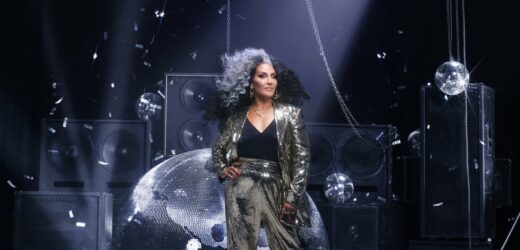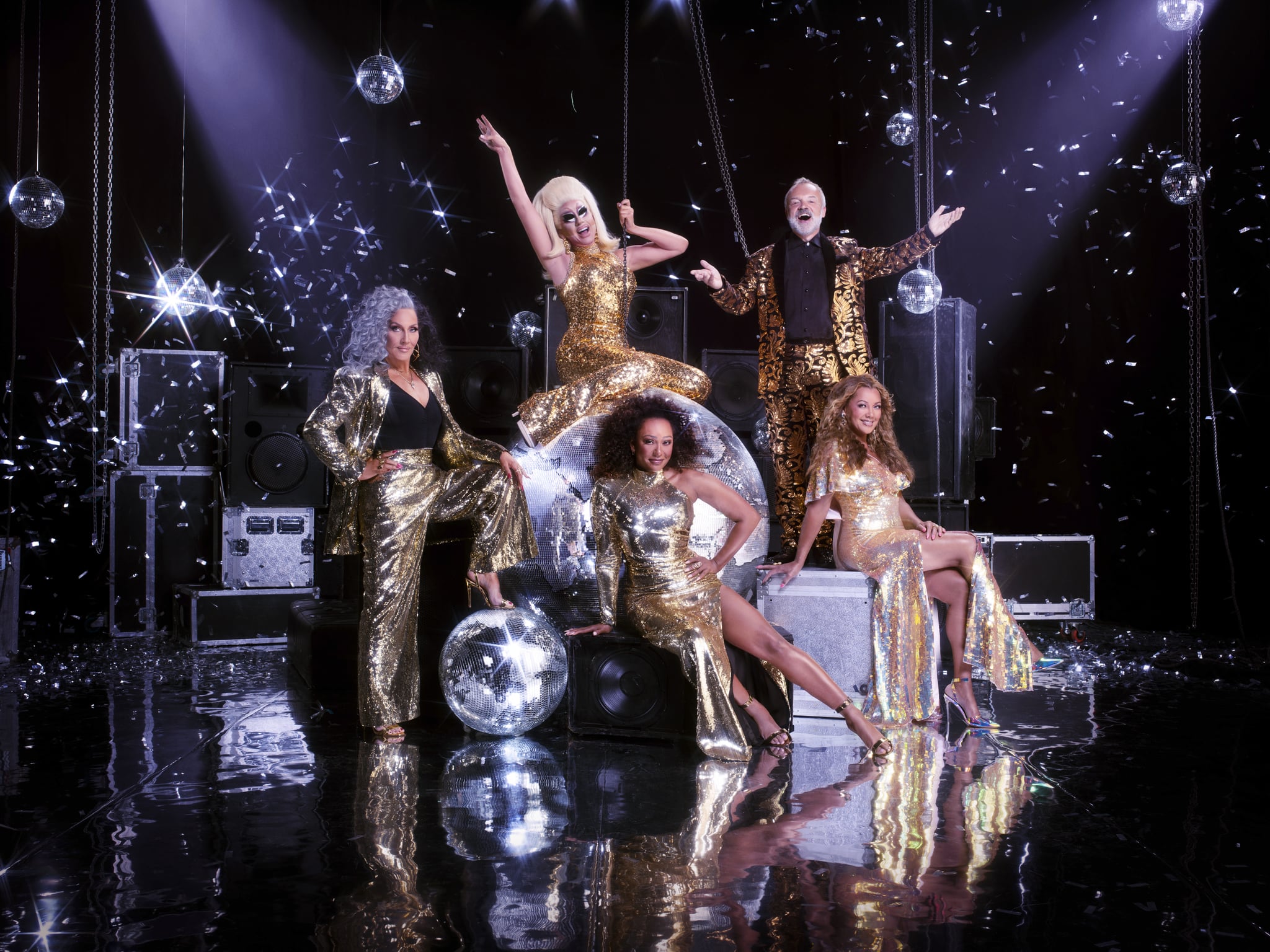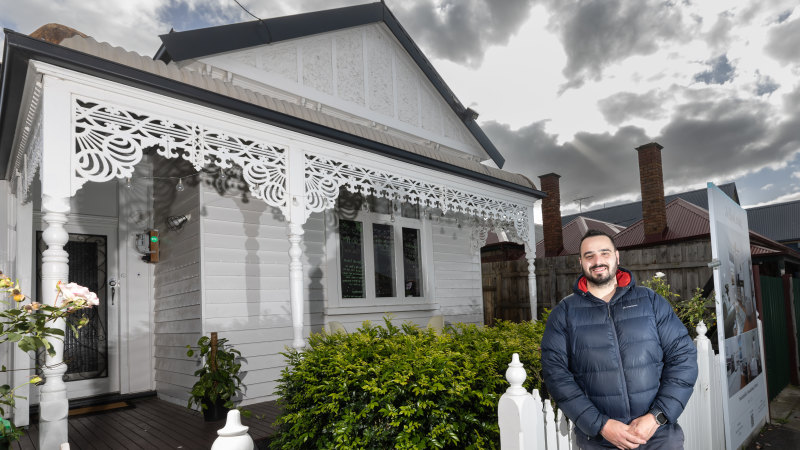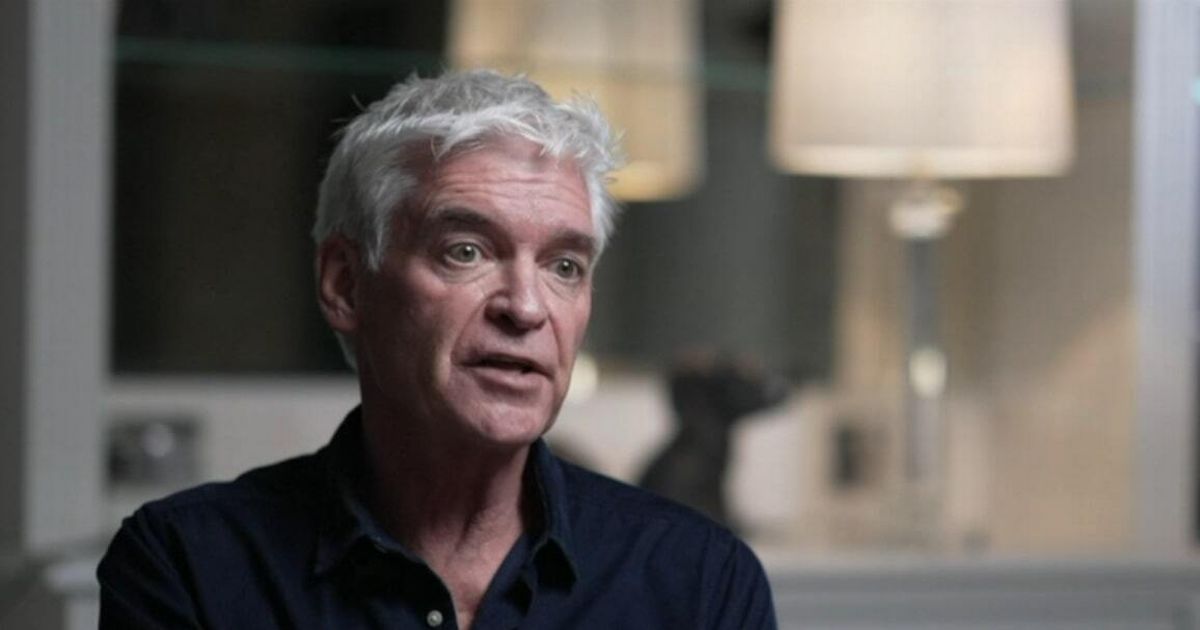Decades ago, it all started with a fake ID and the New York City club scene. Now, Michelle Visage is an outspoken and highly visible ally to the queer community.
You might recognize the Emmy winner as a judge on shows like “RuPaul’s Drag Race,” which recently wrapped its 15th season (and for which she also hosted “Whatcha Packin,'” a digital companion show). She is also a judge on “Queen of the Universe,” the second season of which premieres June 2 on Paramount+. Alongside judges Vanessa Williams, Trixie Mattel, and Mel B, Visage watches as drag queens from across the globe battle it out in a singing competition.
Ahead of the season premiere and in honor of Pride Month, we chatted with Visage about what initially drew her to the drag scene in the 1980s and ’90s, how she supports the community as the mother of a queer child, and more. Read on ahead.
POPSUGAR: What’s one of your favorite memories from filming this season of “Queen of the Universe”?
Michelle Visage: Well, you know, Mel B has joined us, so that in and of itself is just a Scary Spice tornado. And that’s the beauty of it. She’s so much energy and so much fun and such a legend, and joining us, it was just crazy, it was chaos. And that’s what we love. So I don’t know if it’s one particular memory — we just had such a good time. The cast is so completely committed to what they’re doing, and you see the magic in their eyes and you kind of live it through their eyes, and it’s a gift to be able to do that.
PS: What initially drew you to the drag community?
MV: Oh my god, this is so easy. When I first moved to New York City, I moved from New Jersey to go to college. I wasn’t really the popular one in high school. I wasn’t really the one to fit into any one particular group; I kind of forced my way into all the groups, because I wasn’t really accepted, if that makes sense. I was never pretty enough to be the popular girl. I was never cool enough to be with the burnouts. I just didn’t fit in anywhere. I was a punk rock-loving musical-theater kid who dressed like a weirdo, and that was my only outlet — the stage and fashion.
So when I first moved to New York City, I didn’t know anybody, and my mother had sent me a fake ID and said, “You need to go out.” Because back then, there were no cellphones, there was no internet, and the only way to get “discovered” was to go to a club. So my mother sent me a fake ID; it said I went to the University of Texas, which is hilarious, and I started going out to nightclubs. And that’s when I met my first real chosen family.
Becoming part of that Harlem ballroom scene — which most people would know from the show “Pose,” but that was kind of my real life — indoctrinated me and welcomed me into the LGBTQIA+ community. And at that time, I didn’t know anything about these people except that I belonged. I was the only one with my skin color in a predominantly Latinx house, and I was welcomed in as one of their own. It was never any cancel culture, it was never any “you can’t sit with us.” It was always, “You are beautiful, you are perfect, you are loved, come with us.”
Within that community, going to balls and spending all of their time preparing for the next ball, you would go to the drag shows and you would see the drag queens who would compete. And I was one of those ’90s club kids, so I was always out. That’s how I met them, that’s how I became one of them, and that’s how I met RuPaul, actually. I probably met Ru in 1988, 1989-ish.
PS: Obviously, the queer community is very much under attack right now. What are day-to-day ways you support the community?
MV: I have a queer child, so for me, there’s nothing more important than securing the future for our kid and the future of all the other queer kids who don’t have a family to speak up for them or don’t have friends to stand by their side. So I feel like it’s even more of a task to make this world a better place for them in general. But being the parent of a queer child is driving me even more.
What do I do? I make sure I don’t stop talking, I make sure I don’t stop screaming and sharing information and educating. I think a lot of people, because we are being attacked and it is fear- and hate-based, they fear it because these right-wingers don’t know anything. If we do it through hate, we’re not going to win, so we have to educate through love. They don’t want to hear love, but that’s really what we need. Because if we’re yelling and screaming and cursing at them and calling them every name in the book — which is what they deserve — we’re not going to win.
Most of these people don’t understand that there’s nothing about gay or trans people that infringes on their religion or their freedom or their rights. It’s a bizarre thing, like with the way they’re attacking drag — if I went to an ice-skating competition, and I sat there and I watched it and thought it was amazing and then I left there, I wouldn’t be the most incredible ice skater ever on the face of the earth. That’s not the way it works. So if you go to a drag show, you’re not necessarily going to leave there and say, “I’m going to be a drag queen.” It’s not the way it works.
What they’re doing with drag is literally just a “look over there” tactic, because there are so many things that are wrong with our country — like health care, like elder care, like taxes, like abortion, unemployment, poverty, Medicaid. All these things need so much work, and they won’t ever tend to the things that need help. Instead, they’re worrying about the thing that can get the headline. When really, you wouldn’t ask an artist to stop taking a brush to canvas. You wouldn’t tell a dancer that they’re hurting children. Drag has nothing to do with children. It’s a parent’s job to make sure their child isn’t in a drag bar at 11 o’clock at night. If you take your kid to a Drag Queen Story Hour, there will not be a drag queen humping a pole. There will be a drag queen reading a lovely children’s book, and it is completely appropriate for children.
PS: As you said before, it’s important to call out these ridiculous claims when you see them.
MV: That’s all we’ve got, is our voices. So as allies, we need to use them to educate, to speak up, to not stand by idly while these people do this. Contact your congressman. Show up to town hall meetings. Stand up, march. Don’t sit down and just take it.
PS: With Pride Month happening now, how are you planning to celebrate the community?
MV: Well, I celebrate the community every day. Like I said, I have a queer kid, so we celebrate every day in this household. And I will do whatever it takes to constantly support, whether it’s going to Pride marches, Pride events, bring awareness and share posts. For me, Pride Month isn’t any different than any other month. I am proud to be the parent of a nonbinary queer kid. We do it longer and harder and louder, because when June is over, my kid is still queer. And when June is over, there’s still a horrible country they have to go out in.
This interview has been lightly edited and condensed for clarity.
Source: Read Full Article




